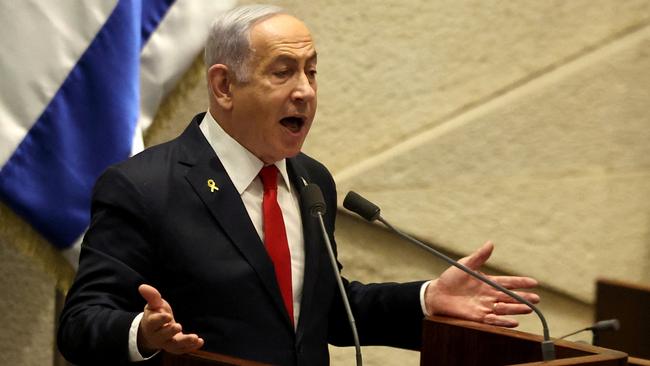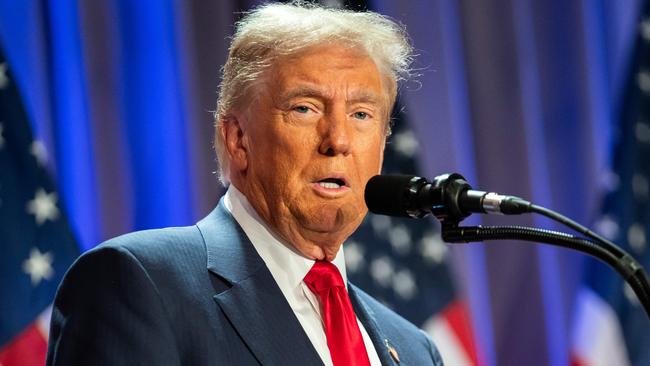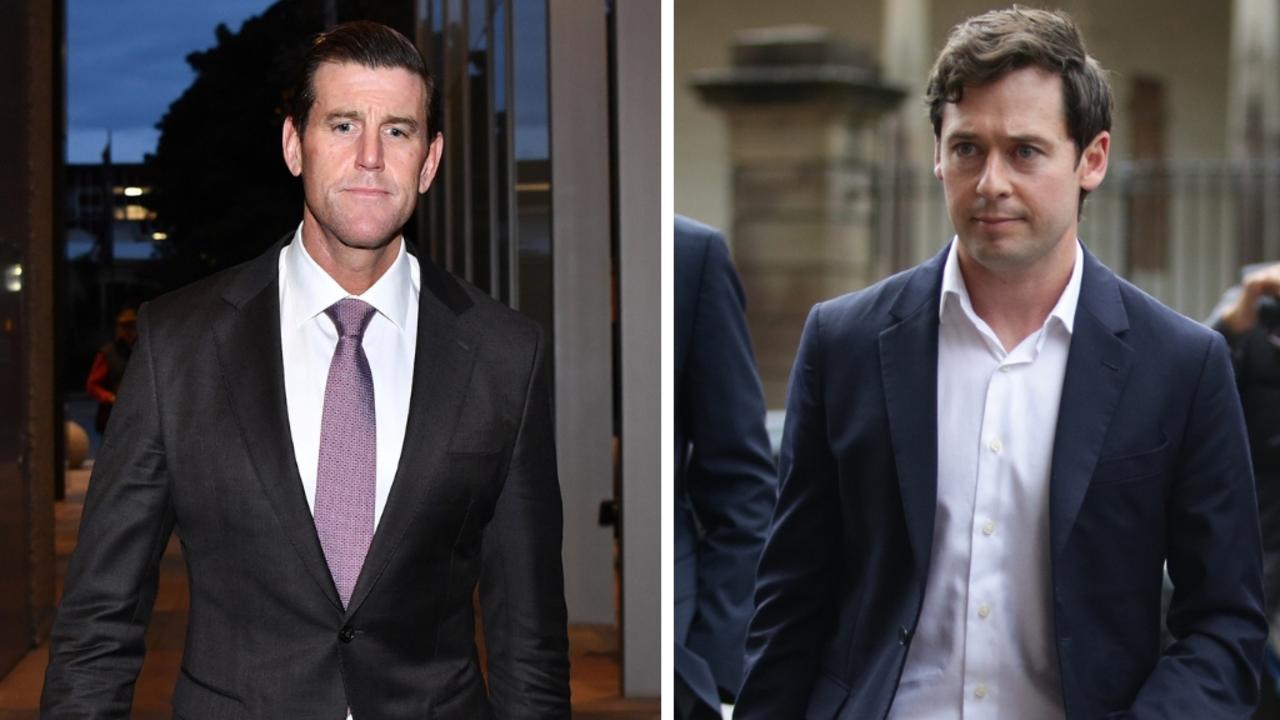
Academics here who have received public grants have even denied video evidence of Hamas’s massacre of 1200 innocent women, children and old people in their homes and at a dance party for peace that Sabbath morning.
Most worrying in media terms was the easy way commentary slipped into automatic acceptance of claims by Palestinian officials, all employed by Hamas, and automatic rejection of evidence from the Israel Defence Forces, operated by a democratically elected government.
This started on October 17, only 10 days after the massacre, with media claims Israel had attacked the Al-Ahli Arab Hospital killing 500 innocents.
In fact, a misfired rocket in the hospital car park launched by Palestinian Islamic Jihad, a militant group based in Gaza, killed fewer than 50.
Journalists who had no clue the Palestinians had been offered and had rejected a two-state solution many times warned the Middle East would be engulfed by a war Israel could not win when Hezbollah finally attacked.
They were utterly wrong. Just as tiny Israel beat its Arab attackers in 1948, 1967 and 1973 it has destroyed Hamas in Gaza and humiliated Hezbollah in only a couple of months of limited action inside Lebanon.
It has also destroyed much of Iran’s missile attack capability and most of its air defences.
Supreme Leader Ayatollah Ali Khamenei is still threatening retaliation against the “Zionist Satan”, and various former generals still appear regularly on Iranian TV spouting nonsense taken straight from the discredited tsarist fraud, The Protocols of the Elders of Zion. But Iran is too weak to send its own forces into a ground war.
Iran’s economy is soft. With 85 million people and enormous oil deposits, its GDP is less than Israel’s and its citizens are restless for the sort of freedom they once enjoyed under the Shah of Persia.
Western feminist intellectuals and journalists don’t stand with their brave sisters marching in Iran’s “Woman Life Freedom” movement for the right to appear in public without the veil, just as they refused to speak up for the young women raped and murdered at the Nova music festival.
Syria’s President Bashar al-Assad can barely defend his country from the Islamists who have taken control of the city of Aleppo (near Russia’s only naval access to the Mediterranean). His Iranian and Russian allies are overstretched.
Russian interest rates sit above 20 per cent and a quarter of its economy is now committed to the war effort in Ukraine. With 150 million people, its GDP is about the same as Australia’s.
The Axis of Resistance has been humiliated by a country a tenth the size of Victoria with only 11 million people. Strength has worked in Israel’s favour but President Joe Biden in the US – the world’s richest and most powerful country – has been too weak to stand up to Iran or Russia.

Israel has killed the entire Hezbollah leadership in Lebanon. Its Mossad intelligence service eliminated Hamas political leader Ismail Haniyeh in his bed in a military guesthouse in central Tehran on July 31 after he and Khamenei attended the inauguration of new Iranian President Masoud Pezeshkian.
Israel’s intelligence services, pilloried for not foreseeing the Iranian-inspired October 7 “Al Aqsa flood”, booby-trapped Hezbollah fighters’ mobile pagers which exploded in their pants on September 18. The western media exploded with outrage at the tactic – the kind of outrage it failed to show on October 7 last year.
Nor have most journalists shown the slightest concern that Hezbollah had been rocketing civilian communities across northern Israel for more than a year, forcing 60,000 people to flee their homes for shelter in the south.
President Donald Trump’s election could end this war, give Israeli Prime Minister Benjamin Netanyahu a much-needed political victory, force Iran back into its box in the face of the potential reintroduction of oil sanctions Trump imposed in 2019, and rejuvenate the Abraham Accords – separate bilateral arrangements signed in 2020 between Israel and Bahrain, and Israel and the UAE, under Trump’s auspices.
It could also end the needless suffering of Palestinians used by Hamas fighters hiding in tunnels under schools and hospitals to twist western opinion against Israel.
The Gulf Co-operation Council annual summit in Kuwait on December 1 stood by its usual criticisms of Israel but reiterated a 2022 financial offer to Lebanon, called on Iran to stop arming Syrian militias and offered Assad aid conditional on his abandonment of Iran and expulsion of Hezbollah.
Saudi Crown Prince Mohammed bin Salman wants peace in Gaza and a two- state solution.
The Washington Institute for Near East Peace on December 2 published a piece by leading US former bureaucrats Dennis Ross and Stuart Eizenstat under the headline “How to end the War in Gaza: Lessons from Lebanon”.
They write: “The first lesson is the crucial importance of backing diplomacy with decisive military power and accurate intelligence.”
Negotiations for a deal with Hezbollah worked “because Israel had clear, limited and achievable political objectives”.
They say Israel, having achieved most of its objectives in Gaza, “must avoid either a vacuum, in which Hamas could re-emerge, or an indefinite stay, which would guarantee an insurgency”.
“The most viable alternative is a mixed interim administration. The UAE is prepared to be part of a stabilisation force in Gaza, and Egypt, Morocco, Jordan and Bahrain might also participate,” Ross and Eizenstat write.
“President-elect Donald Trump has great credibility with the Israeli government, and with the Gulf States, including Saudi Arabia.
“Peace in Gaza would … create an opportunity for Trump to expand the Abraham Accords to include normalisation of ties between Israel and Saudi Arabia.”
While neither country was ready today, if Trump moved quickly, “a Saudi-Israeli breakthrough would transform the Middle East”.
This is exactly the outcome Iran feared when it gave Hamas the green light for the October 7 attacks.
And Trump is moving fast. The Jerusalem Post on December 4 reported his Middle East adviser Massad Boulos confirming what Trump had said on social media: “The president believes that the hostages must be released immediately and there must be no further delay.”
The Jerusalem Post’s Daniel Goldman on December 1 suggested whatever the extreme right of Netanyahu’s government is saying about annexing Judea and Samaria, a broad Middle East coalition building on the Abraham Accords would be the best way for Netanyahu and Trump to secure their places in history.
Remember, Trump formally proposed a two-state solution in 2020. His appointment of hardline Israel backer Mike Huckabee as ambassador is likely a bargaining chip.
Should such a scenario play out, how will the useful fools in the West who saw Palestinians as natural allies of our Aborigines, of homosexuals worldwide and to prosperous middle class Western university students, explain their embrace of a neo-Nazi, anti-Semitic, Islamist death cult?
How will history judge Prime Minister Anthony Albanese and Foreign Minister Penny Wong for selling out Labor’s 50-year relationship with Israel for a few Muslim votes in the outer suburbs of Sydney and Melbourne?







Western journalists, academics and politicians have got much of their analysis of Israel wrong since the October 7 massacre last year.